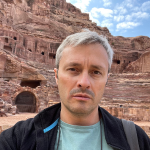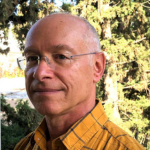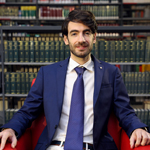Eloquence of the Body: Physiognomics, Medicine and related sciences between East and West (Middle Ages and Early Modern Times)
| Date : |
Monday 24 April 2023 |
| Time : |
1:30 pm – 4:30 pm |
| Venue : |
Richelieu Amphitheatre, Sorbonne University Abu Dhabi Campus |
You are cordially invited to attend the international workshop on Eloquence of the Body: Physiognomics, Medicine and related sciences between East and West (Middle Ages and Early Modern Times)
Abstract
Several sciences, intellectual curiosity and esthetic attitudes contributed to the development of the perception of human body in all historical societies. Christian West and Muslim East make no exception, and this from Middle Ages to Early Modern Times. The debt of the Western civilization to Arabic sciences, from ca.1000, is well known. There would not have been academic Medicine without the reception of Avicenna’s Canon. One of the most important factors in this western reception of exact and natural sciences translated from Arabic has been a new interest to the human body, that animated Christian intellectual communities in several countries, from Toledo and Sicily to Crusaders kingdoms, England and France. The reception of two dozens of newly translated texts changed the discourses of the body, and this change provoked further progresses in literature, imagination, figurative arts, everyday practices, diets, surgery. One of the implications of this reciprocal discovery, around 1200, has become the appearance and swift circulation of doctrines and ideas linked to physiognomics, known to the classical tradition, inherited by Arabic societies and thus rediscovered. Its progress took different ways by Muslims and by Christians. The goal of our journée d’études is multiple. First of all, we want to make this particular old science of the body known to students and colleagues. Then, we would like to compare its achievements, together with some data from history of medicine, in East and West, based on manuscripts that only now start to receive critical editions, and some are still waiting for further studies.
About the speakers
Prof. Oleg Voskoboynikov is a professor at the Higher School of Economics at Moscow, he is a medievalist, historian of scientific thought and arts in medieval West. Formed in Paris, he has been studying the multicultural court of Frederick II. This led him to prepare the first critical edition of the first medieval treatise on physiognomy, the Liber physonomie (ca. 1235) by Michael Scot, famous astrologer and translator. He then published extensively on body practices in 12th-13th century Europe.
Dr. Véronique Pitchon is a research fellow at the Centre national des recherches scientifique, Strasbourg, she is an arabist and historian of medicine, dietetic and culinary arts in the Middle Ages and Early Modern times. She works on medical and culinary manuscripts, produced in Muslim world and dealing with farmacopea, the ‘cura corporis’, medicine, which leads her also to discover and evaluate every day habits and body practices we did not know before, the exchanges of these practices between East and West.
Dr. Joseph Ziegler is a professor at the University of Haifa where he teaches medieval history. Formed at Oxford university in the 1990s, he studied the relations between scientific, religious, and political thought in medieval West. Physiognomic way of thinking is in the centre of his interests, he works and publishes extensively on the physiognomic ‘mainstreame’ in the West 1200-1500, but he also analyzes little known authors and texts, always in their interdisciplinary context and implications.
Dr. Yann Rodier is an Associate Professor and Head of the History department at Sorbonne University Abu Dhabi. He studied anthropological history through treatises on passions and physiognomy, published in the early modern time in France. Political uses of physiognomy are one of the stakes of this “medical science” in the way to understand the otherness. In the framework of his postdoctoral studies, he also published some works on the practice of palmistry by Gypsies in the Early Modern Europe.
The primary language of this event will be French.
Kindly note that this event will be photographed and videographed
Download Event Programme
Please fill-in the registration form below to confirm your participation on campus
Bookings are closed for this event.




